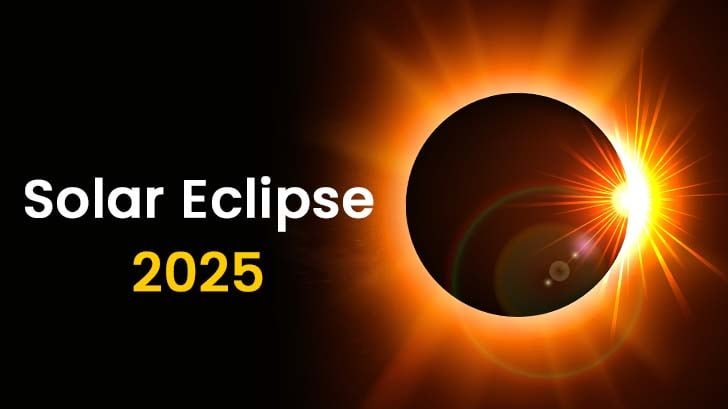Key Points at a Glance:
- The first solar eclipse 2025 will occur on March 29 during Chaitra Amavasya.
- It is a partial solar eclipse and will be visible in parts of Europe, Asia, Africa, North America, South America, and the Arctic.
- In India, the eclipse will occur between 2:20 PM and 6:13 PM IST but will not be visible.
- Sutak period, a religious consideration, will not be applicable in India during this event.
- The solar eclipse will be visible in regions such as New York City, Boston, Montreal, Quebec, and parts of Africa, Siberia, and Europe.
The First Solar Eclipse of 2025: An Overview
The year’s first solar eclipse is set to take place on March 29, 2025, coinciding with Chaitra Amavasya. This partial solar eclipse is a fascinating celestial event where the moon partially obstructs sunlight, casting a shadow on certain parts of Earth.
According to NASA, this eclipse will be visible in various parts of Europe, Asia, Africa, North America, South America, and the Arctic. Unfortunately, this extraordinary event will not be visible from India.
Timings of the Solar Eclipse in India
The solar eclipse in India will officially begin at 2:20 PM IST and reach its peak at 4:17 PM IST. The event will conclude by 6:13 PM IST. However, as the eclipse will not be visible in Indian skies, enthusiasts in the country will have to follow the phenomenon through online broadcasts or reports.
Religious Perspective: Sutak Period
In Hindu tradition, the Sutak period is considered an inauspicious time, starting 9 to 12 hours before the solar eclipse. During this period, initiating any auspicious activities is believed to be prohibited. Since the partial solar eclipse will not be visible in India, the Sutak period will not be observed or considered applicable for this specific event.
Visibility of the Solar Eclipse
Unfortunately, the first solar eclipse of 2025 will not be visible from India. The shadow cast by the moon will not pass over Indian territory, eliminating the chance to witness this mesmerizing celestial event in the country.
Meanwhile, parts of the world, including New York City, Boston, Montreal, Quebec, and regions in Africa, Siberia, the Caribbean, and Europe, will have a chance to experience the partial solar eclipse firsthand.
A Word of Caution
The information provided in this article is based on general references and may not be fully accurate. For precise details or advice concerning the solar eclipse, consulting an expert in the relevant field is recommended.


